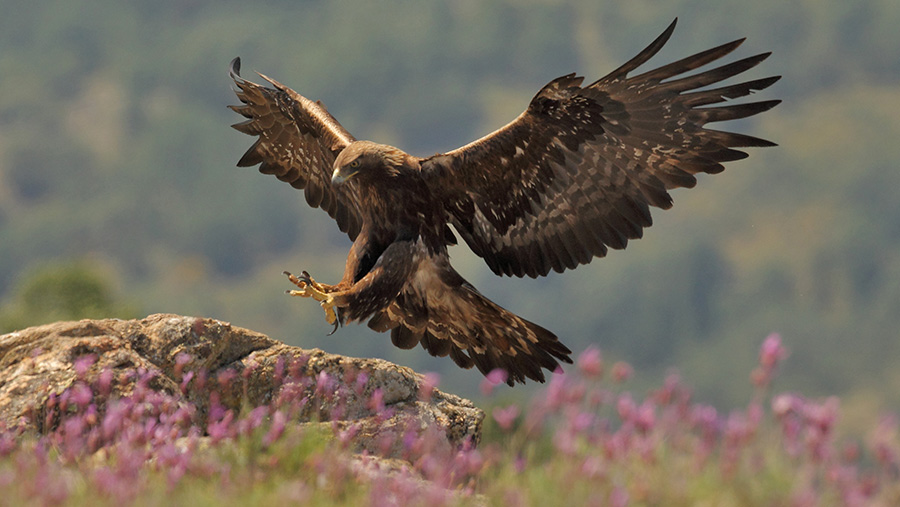Wildcats and golden eagles could be reintroduced in England
 © Paolo/Adobe Stock
© Paolo/Adobe Stock Wildcats and golden eagles are among the species that could be reintroduced to England as the government steps up its wildlife recovery project.
A new group, run by Natural England, has been established to consider the reintroduction of wildcats and the introduction of declining species, such as pine marten, dormice and short-haired bumblebee, into new areas.
Defra secretary George Eustice said a feasibility study for the reintroduction of golden eagles in England will also take place.
See also: Can beavers and farms work together on flood control?
Mr Eustice added: “After a successful release in Devon, we are now looking positively towards the reintroduction of beaver and further releases of this iconic species in England.
“Our consultation, to be issued this summer, will outline our approach to this, and the management of beaver in the wild.”
Membership
Farmers are reported to be a part of the new government task force along with anglers, ecologists and other experts.
No official membership list has been published, but the NFU said it hoped to be included.
Natural England said the group will “share knowledge, assess and prioritise species for reintroduction and develop partnerships for delivering high-quality projects”.
An NFU spokesperson said: “It’s good to have strategic oversight of reintroduction proposals coming forward that this group has the potential to provide.
“We want to make sure socio-economic issues are properly recognised and addressed in the discussions, such as the impact on farmers.
“We want to encourage full consultation with everyone affected by a proposed species release, particularly where the species is known to move away from the release site.”
Breeding pairs
The golden eagle was exterminated in England by 1850, but in recent years one pair has bred in the Lake District, the RSPB said. There are a small number of breeding pairs in Scotland.
Wildcats are not thought to have lived in the wild in England for more than 200 years.
Tony Juniper, Natural England chairman, said: “A new target for nature recovery enshrined in law will be a powerful new driver for co-ordinated action, as was found on cutting greenhouse gas emissions following the passage of the Climate Change Act.
“Meeting a stretching nature target can be done, so long as we can join up different policy areas, such as farming, housing development and infrastructure, while also improving overall environmental quality in terms of air and water pollution.”
Rewilding Britain said it expected to be part of the task force. The organisation stressed the importance of full and proper consultation with all stakeholders and local communities, including farmers and other landowners and land managers, alongside careful assessment of sufficient habitat and natural prey.
Rebecca Wrigley, chief executive of Rewilding Britain said: “In nature-depleted Britain, we’ve lost a wide range of native species, so this could be a very positive development, and we’ll be keen to engage closely with this task force over the coming months.”
